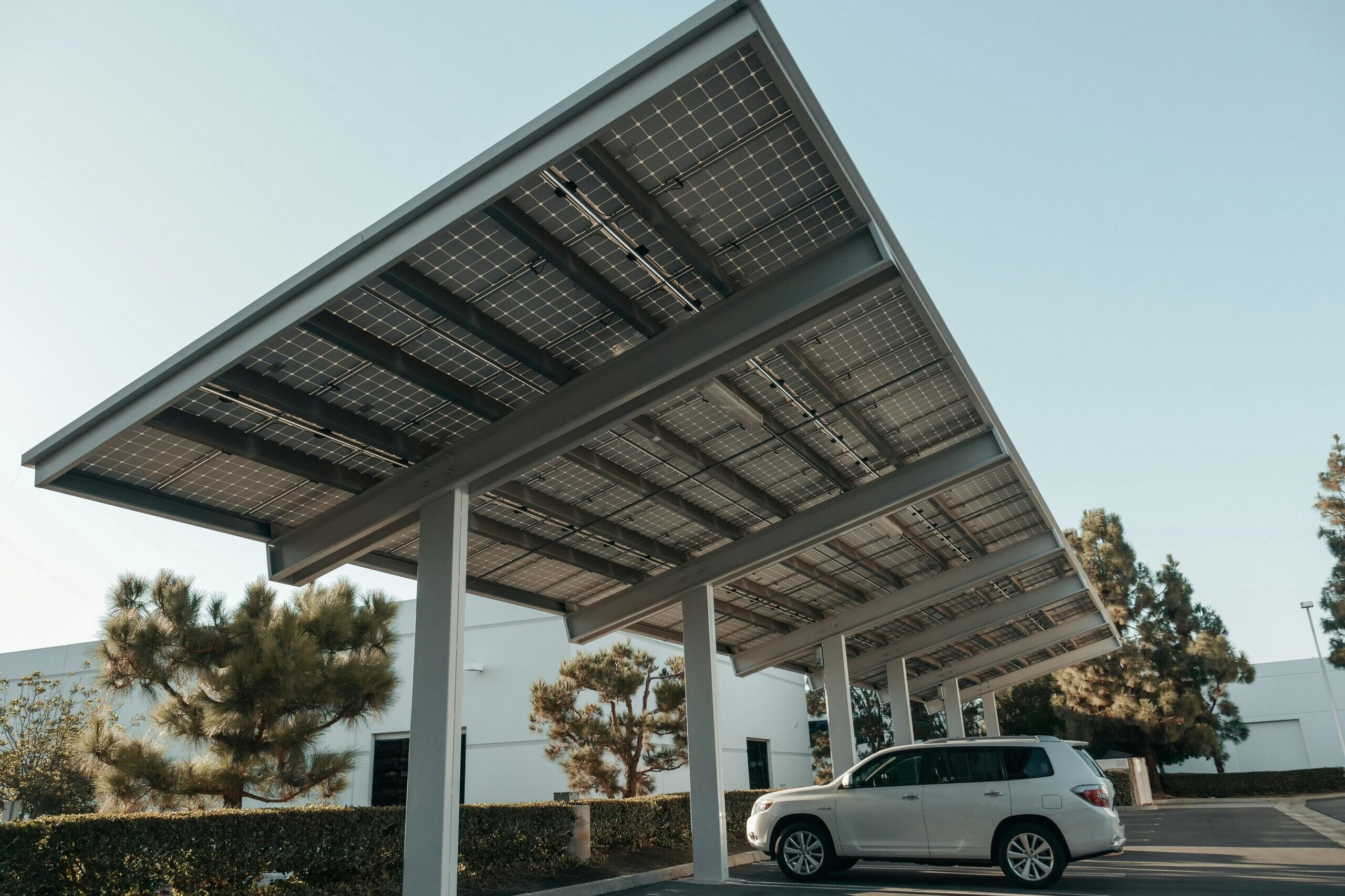
As energy costs continue to rise and sustainability takes center stage in business operations, commercial and industrial properties are turning to solar power as a strategic investment. From warehouses and manufacturing plants to office complexes, businesses are recognizing the financial and environmental advantages of adopting solar energy solutions. According to the Solar Energy Industries Association (SEIA), solar continues to be the lowest-cost power source—unsubsidized—making it an even more compelling choice for businesses looking to reduce operational expenses.
Ansgar Solar specializes in delivering customized solar solutions that align with the structural and logistical requirements of commercial solar systems. With increasing incentives and the push for renewable energy, now is the perfect time for businesses to explore solar energy as a viable long-term investment.
Why Businesses Are Choosing Solar for Commercial and Industrial Properties
Cost Savings and Financial Incentives
One of the most compelling reasons businesses invest in solar energy is the significant cost savings. Electricity rates fluctuate, and dependence on the grid exposes companies to long-term price increases. Solar power provides a predictable energy cost, allowing businesses to allocate resources more effectively.
Additionally, businesses can take advantage of tax credits and financial incentives. The Investment Tax Credit (ITC) allows businesses to deduct a percentage of their solar investment from federal taxes. Many states also offer grants, rebates, and performance-based incentives that reduce the initial cost of solar installation.
Sustainability and Environmental Benefits
Reducing carbon footprints is a growing priority for companies aiming to align with corporate social responsibility (CSR) goals. Solar power significantly lowers greenhouse gas emissions, helping businesses contribute to cleaner air and a healthier environment.
Organizations focused on sustainability gain a competitive edge, appealing to environmentally conscious consumers and investors. Some companies are even meeting regulatory requirements by integrating solar energy into their operations, particularly in industries with stringent emissions guidelines.
Energy Independence and Reliability
Power outages and grid disruptions can severely impact business operations. Solar energy systems, especially when paired with battery storage, provide greater energy security. Industrial facilities and commercial buildings that incorporate solar reduce reliance on external power sources, ensuring they can continue operations even during grid failures.
For companies that require consistent power for manufacturing, logistics, or office operations, solar energy provides stability and resilience. This energy independence is particularly valuable in regions prone to extreme weather or high energy demand.
Tailored Solar Solutions for Commercial and Industrial Properties
Structural and Logistical Considerations
Each commercial property has unique energy needs and structural considerations. Ansgar Solar tailors its solutions to meet the specific demands of warehouses, manufacturing plants, and office buildings. Factors such as roof load capacity, shading, and energy consumption patterns are analyzed to develop optimal solar configurations.
For businesses with high energy consumption, solar panel systems can be designed to offset a significant portion of their electricity usage. Ground-mounted systems and carport installations are also viable options for properties with limited roof space.
Scalability and Long-Term Investment
Solar energy is a scalable solution that grows with a business. Companies can start with a system that meets their immediate energy needs and expand as their operations evolve. This adaptability makes solar a future-proof investment, particularly for businesses planning to increase production or expand facilities.
Furthermore, solar panel technology continues to advance, improving efficiency and longevity. Many high-quality solar panels have warranties of 25 years or more, making them a reliable long-term asset.
How Solar Enhances Operational Efficiency
Lower Overhead Costs
Reducing energy expenses allows businesses to allocate funds toward innovation, workforce expansion, and other operational improvements. Solar energy contributes to lower overhead costs, freeing up capital for growth and development.
Integration with Smart Energy Systems
Modern solar solutions integrate seamlessly with smart energy management systems. Businesses can monitor energy production and consumption in real-time, optimizing their usage patterns. These systems help companies identify energy waste and implement cost-saving strategies.
Navigating the Transition to Solar
Conducting an Energy Audit
Before transitioning to solar, businesses benefit from conducting an energy audit. This assessment identifies current energy usage, peak demand periods, and potential inefficiencies. Understanding these factors ensures the solar system is designed for maximum impact.
Partnering with an Experienced Solar Provider
Working with an experienced solar provider ensures a smooth transition. Ansgar Solar provides expertise in engineering, permitting, and installation, addressing any challenges that may arise during the process. Businesses receive tailored guidance on system design, financing options, and compliance with local regulations.
Understanding Maintenance Requirements
Solar energy systems require minimal maintenance, but regular inspections optimize performance. Keeping panels clean and ensuring inverters function correctly maximizes efficiency. Many businesses opt for maintenance agreements to streamline this process.
The Future of Solar for Commercial and Industrial Properties
The adoption of solar energy in commercial and industrial sectors continues to accelerate. Advancements in battery storage, grid integration, and energy management will further enhance the benefits of solar power. Businesses that embrace solar today position themselves as industry leaders in sustainability and innovation.
As policies and incentives evolve, companies can leverage these opportunities to reduce costs and strengthen their commitment to renewable energy. With organizations like the Solar Energy Industries Association (SEIA) advocating for commercial solar growth, businesses have more support than ever in making the switch.
Conclusion
Solar energy is transforming the way commercial and industrial properties approach energy consumption. By reducing costs, increasing energy independence, and supporting sustainability initiatives, businesses benefit from a powerful, long-term investment.
Ansgar Solar specializes in providing tailored solutions that meet the unique needs of warehouses, manufacturing plants, and office complexes. With the right strategy, businesses can harness the full potential of solar energy and gain a competitive edge in their industry.
